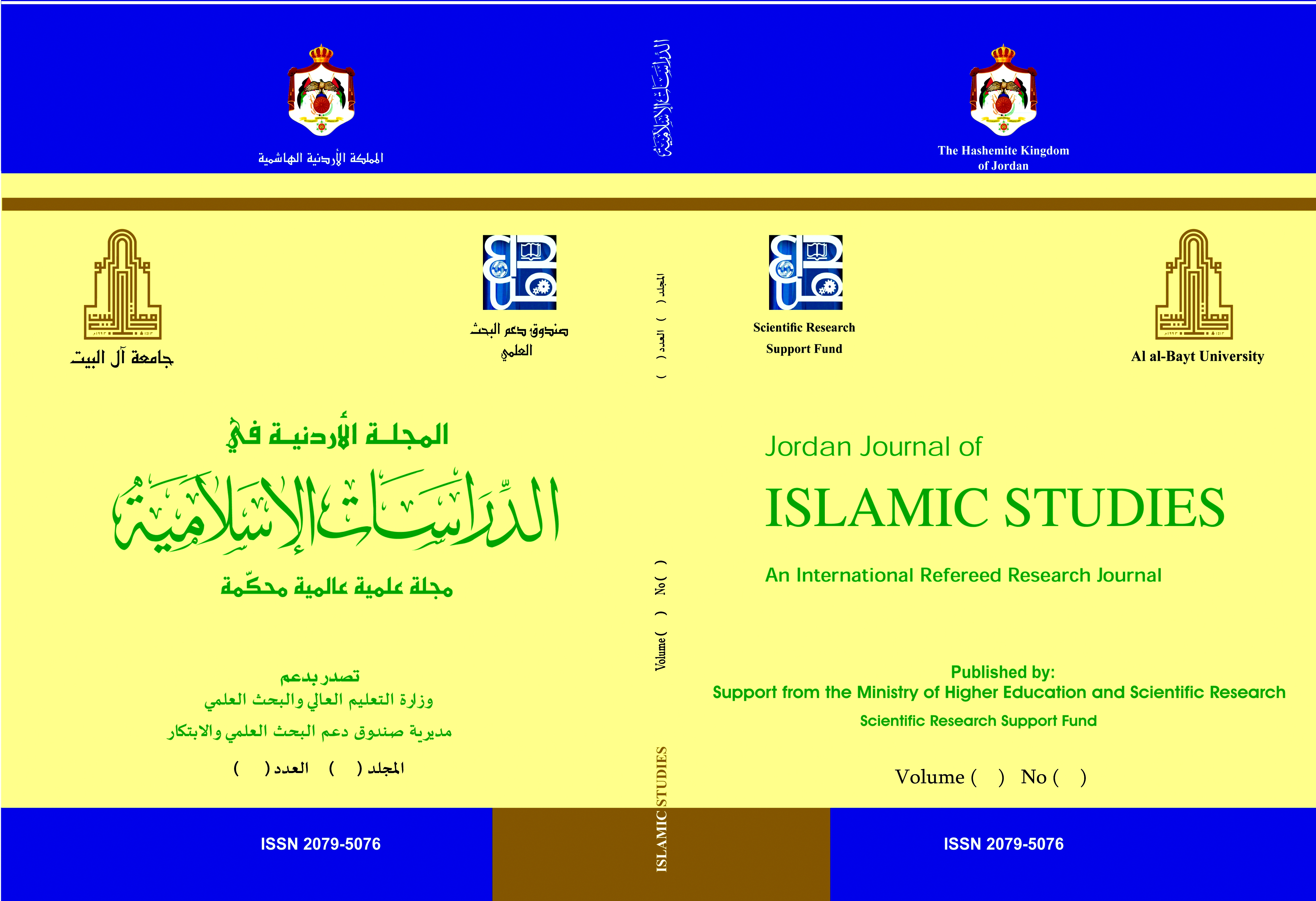Jordan Journal of Islamic Studies

Article Title
Abstract
اشترط العلماء في المفسِّر الذي يريد أن يُفسِّر القرآن الكريم برأيه بدون أن يلتزم الوقوف عند حدود المأثور منه فقط، أن يكون مُلِماً بجملة من العلوم التي يستطيع بواسطتها أن يُفسِّر القرآن تفسيراً عقلياً مقبولاً، وجعلوا هذه العلوم بمثابة أدوات تعصم المفسِّر من الوقوع في الخطأ، وتحميه من القول على الله بدون علم. كاللغة والنحو والصرف والاشتقاق والبلاغة والقراءات وأصول الدين وأسباب النزول والقصص والناسخ والمنسوخ، والأحاديث المبيِّنة لتفسير المجمل والمبهم، ليستعين بها على توضيح ما يشكل عليه، وغير ذلك ممّا هو معروف في بابه، مبسوطٌ في مظانّه.
فهذه العلوم- التي هي كالآية للمُفسّر لا يكون مفسّرا إلا بتحصيلها فمن فسّر بدونها كان مفسِّرا بالرأي المنهي عنه، وإذا فسر مع حصولها لم يكن مفسرا بالرأي المنهي عنه.
إلاّ أنّ القيمة الذّوقية، أو باصطلاحٍ مقارب "علم الموهبة"، تُعدُّ لدى أساطين علوم القرآن الكريم وتفسيره علما أساسيا ومصدرا رئيسا للمفسّر، ضمن العلوم التي يحتاج إليها المفسّر، بل تُعدُّ أصلا للوقوف على معاني القرآن الكريم كما عبّر بذلك الزركشي في البرهان.
هذا البحث سيحاول تقديم تعريف للقيمة الذّوقية مع بيان الفرق بين القيمة الذّوقية وعلم الموهبة، وسيحاول الكشف على ما مدى اعتماد أهل التّفسير على القيمة الذّوقية أثناء العمليّة التّفسيرية.
الكلمات المفتاحية: القيمة الذوقية، النص القرآني، العملية التفسيرية، علم الموهبة، الذوق.
The scholars stipulated that the interpreter who wants to interpret the Holy Qur’an according to his opinion, without being bound to stop at the limits of what has been narrated from it only, must be familiar with several sciences through which he can interpret the Qur’an in an acceptable rational way. They made these sciences as tools that protect the interpreter from falling into error and protect him from saying about God without knowledge. Such sciences include language, syntax, morphology, derivation,
rhetoric, readings, fundamentals of religion, reasons for revelation, stories, and the hadiths that explain the interpretation of the general and the obscure, in order to use them to clarify what is confusing, and other than what is known in its section, simplified in its propositions.
These sciences - which are like a verse for the interpreter, can only be interpreted by acquiring them. Whoever interpreted without it was interpreted by the opinion that is forbidden, and if he interpreted with its occurrence, he is not interpreting by the opinion that is forbidden.
However, the sense value, or in a similar term, "the science of endowment", is considered by the masters of the sciences of the Holy Qur'an and its interpretation a basic science and a major source for the interpreter, among other sciences that the interpreter needs. Rather, they are originally prepared to find out the meanings of the Holy Qur’an, as expressed by Al-Zarkashi in al-Burhān.
This research will try to provide a definition of the sense value with an explanation of the difference between the sense value and the science of endowment, and it will try to reveal the extent to which the interpreters depend on the sense value during the interpretive process.
Keywords: The sense value, Quran, Objective interpretation.
Recommended Citation
Qurishi, Midhat
(2022)
"القيمة الذّوقية وأثرها في تفسير القرآن الكريم The Sense Value and its Impact on the Interpretation of the Holy Qur’an,"
Jordan Journal of Islamic Studies: Vol. 18:
Iss.
4, Article 14.
Available at:
https://digitalcommons.aaru.edu.jo/jois/vol18/iss4/14

